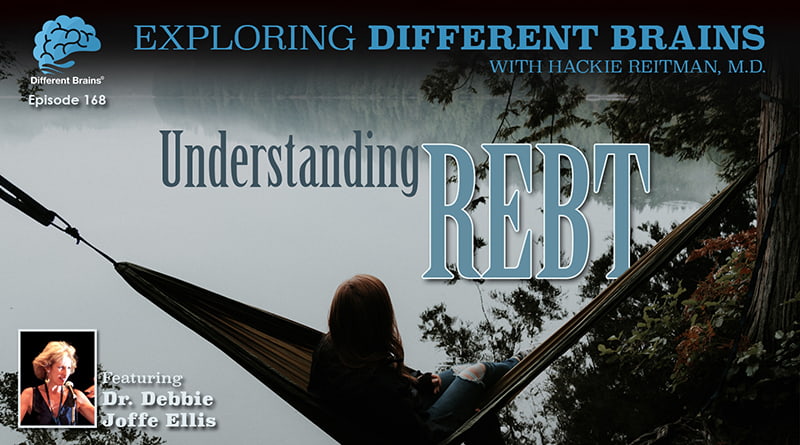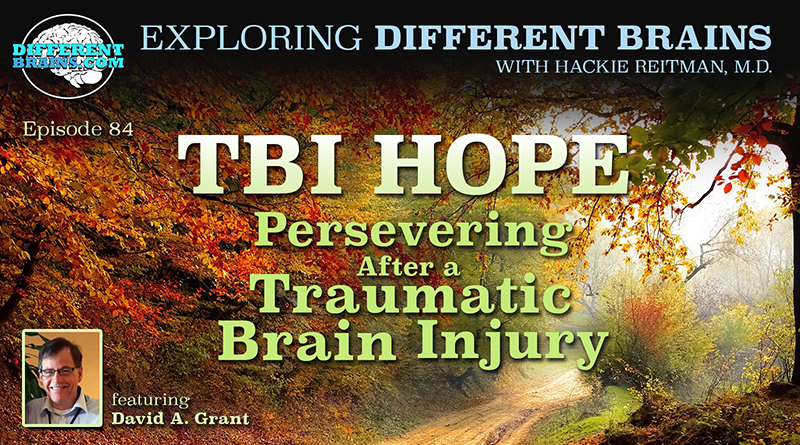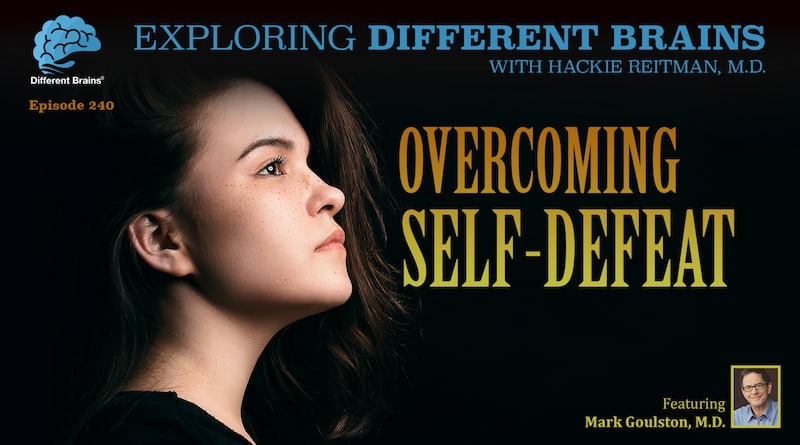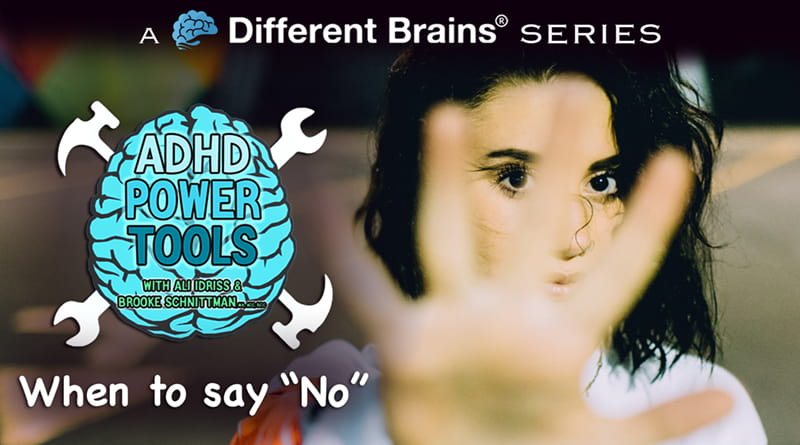
Understanding REBT, with Dr. Debbie Joffe Ellis | EDB 168
Visiting again with psychologist and REBT proponent Dr. Debbie Joffe Ellis
(26 minutes) Debbie is also a private practice mental health counselor in New York City and an adjunct professor at Columbia University. She also delivers lectures, workshops and seminars throughout the US and across the globe about Rational Emotive Behavior Therapy (REBT). Join Hackie and Debbie as they discuss more details about REBT, how mindfulness and self-reflection play a role in our health, as well as how traditional and holistic medicine go hand in hand.
For more information about Dr. Debbie Joffe Ellis, visit: www.debbiejoffeellis.com
For Debbie’s first episode, click here!
To listen or download the podcast version of this episode, see the embedded player below.
Or look for us on your favorite podcast provider:
iTunes | Stitcher | SoundCloud
TRANSCRIPTION
[expand title=”View Full Transcript”]HACKIE REITMAN, M.D. (HR): Hi I’m Dr. Hackie Reitman, welcome to another episode of Exploring Different Brains; today we have returning to us, Dr. Debbi Joffe Ellis, who’s going to tell us more about REBT and why it is so important. Debbi, welcome back.
DEBBIE JOFFE ELLIS (DJE): Thank you, Hackie! Pleasure to be here.
The positives of REBT
HR: It’s a very positive REBT, and what I like about it too, is it’s not long-term. It’s like, let’s do something positive for you, and get on with it. Am I correct in that?
DJE: You’re correct, that it’s short-term effective for many, many people. However, it can be helpful for people with personality disorders, you know, people with OCD, borderline, or – but many of them would benefit from longer term, because there’s more deeper issues, and then biochemical components to deal with. But for people, Al had this expression, “nice, normal neurotics.” I’ve done demonstrations of it, and within 15 minutes, a person has shared with me, or a number of people, that I never thought of it like that, and thinking of it in this new way changes their life. And if, now, it takes them continuing to make effort to monitor their thinking to maintain the change. But it can begin in a moment of awareness, if a person is willing, again to think about their thinking and to dispute the unhelpful thinking, and then the good news is that once one chooses to get into the habit of watching one’s thinking, and catching the irrational thoughts, and disputing and replacing them, over time, one gets into the habit of thinking in rational ways, and being able to do what I do, that when I hear the word humiliation, ding ding ding! Many people who haven’t embraced REBT or similar ways of thinking, you know, it would just go by them. So, yeah, it’s very-
HR: Oh, that’s great. I’ve learned so much today. I feel like REBT has really helped me already!
DJE: Exactly! Because you are open to it. I mean it takes being willing to be open to it and then to be willing to practice it over time, yeah. So just to finish off the elements of rational thinking, which have the opposite of the irrational thinking, I was starting to say we want what we want – we have desires, passionate desires, and not demands. We keep things in perspective. We have a sense of humor. We don’t blow things out of proportion. We don’t think in absolutistic ways or the generalized or think in stereotypical ways. We have HFT, which stands for High Frustration Tolerance, in other words, and I love what I’m about to say with you, is a mantra. I’ve used it a lot, I share it with many of my clients and students, encouraging them to think this way: “I can stand what I don’t like. I just don’t like it.”
HR: I like that.
Understanding perspectives and histories
DJE: Yeah, it’s simple, but it is impactful rather than “ I can’t stand it!” I mean the reality is, it’s a person literally couldn’t stand something, wouldn’t they have dropped dead, or exploded all over the ceiling? They can stand a week in standard, we are resilient unless we tell ourselves we are not, and finally and this is one of the most impactful aspects of REBT, which is not emphasized in other cognitive approaches, and that is it’s encouragement to adopt attitudes of unconditional self-acceptance, reminding ourselves that we have worth, simply because we exist. You don’t have to do anything to be worthwhile. Hopefully we’ll choose to do more good than bad, but either way we have worth. So REBT encourages us to adopt the attitude of unconditional self-acceptance and unconditional other acceptance, which is a toughie for a lot of people. But doable if one chooses to and sees the benefits, and unconditional life acceptance. Heartening back to self-acceptance and other acceptance it’s been controversial. Many people say, “How can you expect me to unconditionally accept another person who has raped someone, who has murdered people, who has acted in horrendous ways; how can you expect that?” And here’s the response: It’s a choice. But if we’re willing to contemplate that that evil doer was once a vulnerable little baby too, like you and me, and then if you and I had had their genetic tendencies, their biochemical nature, particular situations in their upbringing; if you or I had been indoctrinated to believe what they believe, had had their adolescence and teenage years, and maybe being bullied, maybe feeling worthless. If you and I had their experience of maybe feeling accepted by a group that taught them “ If you do this, this and this, you’ll get to heaven” or “good things will happen” or “we will love you more”. If you or I had their experiences in adulthood and had been thinking what they were thinking the moment they did their evil act, then isn’t it probable that you and I would’ve done something like that too?
So REBT isn’t about accepting bad behavior, and is all for healthy consequences. But to come from a place of rationality, and frankly gratitude that thereby- that for the grace of the good fortune in my life, could’ve gone by, and there are many people in the world who demonstrate that unconditional other acceptance and forgiveness is possible. So this isn’t just an ideal. It’s doable if one chooses to do it. And why would one choose to do it? Because the alternative is living with hatred, and bitterness within, which, you know, REBT talking about holism, but knowledge is backed on the physical health of unhealthy emotion, and hatred and bitterness can lead to the development of dormant, genetic tendencies, cancers, ulcers, diabetes, you as an MD would know much more about that than many of us do. So –
HR: I thought you were going in a different direction with that. I thought you were going more in the direction of Victor Frankl in “Man’s Search For Meaning” where he was moving the bodies around, and looking out through the window, and he said “Then he had a choice. Either this all horrible, terrible, ‘Why do you do this god?’ or go into a rage” Or I can say that is a beautiful sunset over there. He didn’t get in, you know- which is different than the forgiveness.
DJE: Well I didn’t get there yet.
HR: Oh, ok I’m sorry! (chuckles)
DJE: An element of REBT is definitely to focus on what still is good, to accept what is bad, and not either or, both and, REBT is not about putting your head in the sand: accept what’s bad, do what you can about it if you can, and at the same time focus on what is good, and gratitude is an essential attitude; encourage in REBT, I wrote an article about it just a few years ago, and talk about it all the time. Victor Frankl and Albert Ellis were colleagues and very fond of one another, and their philosophies are aligned, so you beat me to it, Hackie.
HR: Oh, well that’s my big mouth, there it goes again. (chuckles) where does fear fit in to all this?
Fear and REBT
DJE: Well, there’s healthy lifesaving fear, that if you know, a poisonous snake is about to bite you, you mentioned it before, the fight or flight, but if we’re talking about self-created fears that doesn’t serve the function of serving your life, then it’s one of the unhealthy paralyzing emotions, and you know, sadly what happens with a lot of people before they embrace something like REBT is something what I call “Arrested thinking”, it can be- let’s say I’m afraid of being rejected, and so let’s say someone has been rejected, or thinks they will be, thinks they will be, and this is- and the fear, and the fear, and they don’t take it to the next thinking step which is, “okay. This is REBT thinking.” Let’s say worst case scenario in this instant, you get rejected, then what?” “Oh it would be awful!” Well, it would be very bad, but prove to me it’s awful. In REBT awful meaning the worst it possibly could be, which in REBT thinking, would be death. Because where in life, there’s hope, and then other people would “well, I guess it’s not the very worst thing that could happen” so they think it through, and it’s not to make them like something that’s not likable, but to take away the fear and the horror of something that frankly is not life threatening.
Okay, the next basic element of REBT is – and I’ve mentioned this- with awareness, we have choice. If we’re not aware, or willing to think about our thinking, then habitual ways of thinking will continue, and be self-defeating. So with awareness we have truth. You know, there are whole new types of therapy, so called, coming up, or third wave, or full wave; a number of them seem like chips of the old block, you know, without giving credit to the old block from which they came, and so- and this is not to criticize the benefit of any of them, and I was certainly biased, and I really do believe that REBT pretty much has most of the elements that conserve the person pragmatically, behaviorally, cognitively and emotionally, and compassionately; so anyway there’s one of the nuances, mindfulness, of psychotherapy, I think REBT is past the original one of one of the original mindfulness psychotherapies. Be mindful. Think about your thinking. Be present in the now moment and what’s going on in the here and now, and how is that serving you, and what can you do. So anyway, another basic tenet of REBT is it’s not enough to have that “ahah!” moment, or that awareness of that epiphany, that’s the beginning. And then to maintain healthy change requires ongoing effort, ongoing effort. It’s like, you know, when you were doing boxing, and maybe you had your really good first game and after you did your basic classes. But to maintain your gains and to get better you had to keep practicing, right?
So anyway, there are a number of similarities, I don’t think we have time for that, because there are other things for us to talk about now, but I think I’ve shared with you now, the basic tenets of REBT. To read more about them, any one of the 85 published books by Albert Ellis, countless chapters in textbooks by Albert Ellis, and a number of chapters by he and I in more contemporary textbooks or revised and updated chapters since his passing, and a book that’s just come out by he and I, but it’s the second edition so obviously I’ve done it and updated it, it’s called ‘Rational Emotive Behavior Therapy’ by Albert Ellis and Debbi Joffe Ellis, just out, just out, published by the American Psychological Association, so it’s the second edition.
HR: Do you happen to have a copy handy to hold up? There it is, and where can people find this book?
DJE: Well certainly, they can order it through the American Psychological Association online, or can call them.
HR: Ok, and hold it up again, because you just revised it, and you’ve – and these are theories, and this is everything under one roof.
DJE: In concise form of course, maybe many of the books that we wrote and that Al wrote going into much more detail, one of his books- I’m looking up here because I have so many of the books that he wrote, or he and I used to do research for the books he did in the late 1990s, til’ his death in the 2000s, he died in 2007. He was a lot older than I, and had those many many books published before we were working together on his writings. But anyway, if someone wants a simple, concise primer, what we won’t have time to do today Hackie is, for me to describe the cognitive behavioral and emotive techniques, and they’re mentioned in that book, and again mentioned in many of the books that Al wrote.
HR: And how do people get in touch with you, Debbi?
DJE: Anyone that wants to learn more about what I do, and where I’m presenting, can look at my website, www.beginning management books and how do people get in touch with you Debbie anyone who wants to learn more what did I do and where I’m presenting my website www.debbijoffeellis.com.
Holistic vs traditional medicine
HR: Can you discuss for us how you navigate between holistic and traditional medicine from your unique perspective?
DJE: Well, I don’t think it’s all that unique, I think many and growing people have come to embrace this view, which is – there is a vital need for elements of traditional medicine. If you break your leg, you know, thinking right won’t heal the bone. But thinking in healthy ways might strengthen your immune system and facilitate better healing. But we still need our surgeons. We still need our cancer specialists. Many people still benefit from elements of traditional medicine. But that alone, according to REBT and the way I think, is one wing of a healthy flying bird, and so by thinking in healthy ways, and creating healthy emotions, and then adopting practices from what’s called alternative healing such as Yoga, and meditation, and a therapeutic massage, and feeling oils and to run a therapy. You know, there’s a scientific basis to all of those. I’m not talking namby-pamby superstitions here. Talking about ancient traditions that in the early development of traditional medicine, one enhances the other, and the element of creativity, music and art, as healing forms. As healing modalities. You know, it’s such a shame, there’s such a richness before human beings, and it’s a shame when there’s a small smorgasbord to say “I’m only gonna eat that”, when we can have that and this and this and this and have a richer and colorful and healthier life.
HR: Well that’s very well said, and we want anyone watching this, if you have any medical problems, consult the professionals. I don’t think it’s – I agree with you, it’s not an either or, it’s take the best of all worlds. The best that we can do.
DJE: Yeah. And many specialists or MD’s who are primarily at the biochemical vent, do now increasingly encourage patients to take on some of the holistic elements I mentioned. You know, the Aussie actress and singer, Olivia Newton-John, is a survivor of cancer, and even now, according to what I’ve heard, she’s working to heal herself from a new bout of cancer. But she’s done a lot to increase the awareness in people of the benefit of holistic healing along with traditional modalities and in the royal Melbourne hospital I believe it is, or it might be the Royal Children’s hospital, one of the main hospitals, might be another one actually, forgive me if I haven’t got the name. But one of the main hospitals in Melbourne Australia has a section now for holistic healing and meditation, so forth, and many of the hospitals I’ve heard of here in the USA and here in New York, have classes of meditation, and other forms of self-healing and awareness.
The psychological differences between Australia and the USA
HR: And you know, you- when you shuttle a bit between the United States and Australia, and with your entire background, what would you say that someone like myself has never been to Australia doesn’t get about the biggest difference between there and here, as it applies to what we’re talking about today.
DJE: So what I’m about to say is another generalization, because there are individuals here and there to which it doesn’t apply, and REBT cautions us to watch out for any tendency to be generalized because that can give us a misperception and not help. Generally speaking, Australia has free medicine provided for all free medical care. It’s a continent the size of the USA, and yet with the population of New York State spread around. So it has literally more space, it has certain conditions that facilitate education and flourishing, and growth, and so again this is another generalization; a number of Aussies can tend to be more easy going, and less prone to stress than some, not all, Americans who live in intense, fast moving cities. But really I wanna conclude my response by question, by saying, “Each human is an individual with choice, and no matter what color or culture or upbringing, the positive, the negative circumstances, if we are aware we have a choice. We can choose to be easygoing, no matter how intense our surroundings. We are not victims of our environment or the people in our lives and things we tell ourselves that we are.
HR: Is there anything we have not covered that you’d like to cover?
Tolerance and REBT
DJE: You’ve covered with your excellent questions and giving me the space to speak, I think we’ve covered a lot. I would like to emphasize again, the importance of space, especially at this time of tolerance, which comes from making the effort to have unconditional acceptance of others; others who have political beliefs we may not agree with, or certain people in positions of power politically, or in the work environment, or family members. The expression, hanging on to rage or bitterness or hatred is like eating poison and waiting for the other person to die, and so we’re hurting ourselves, we’re not even hurting the person we dislike, you know, and so to choose to create a climate of tranquility within us, that can only be created by thinking in healthy ways, because life will contain lots of suffering. Now when we think in healthy ways, we minimize the emotional suffering, which means we liberate more energy to enjoy.
HR: Well, Debbie, it’s been another great episode with you here. Thanks again for coming back, and telling us all about REBT and how we can make our lives better through it. Thanks for all you’re doing, and I hope to see you again soon.
DJE: I look forward to that, thank you Hackie.
[/expand]



